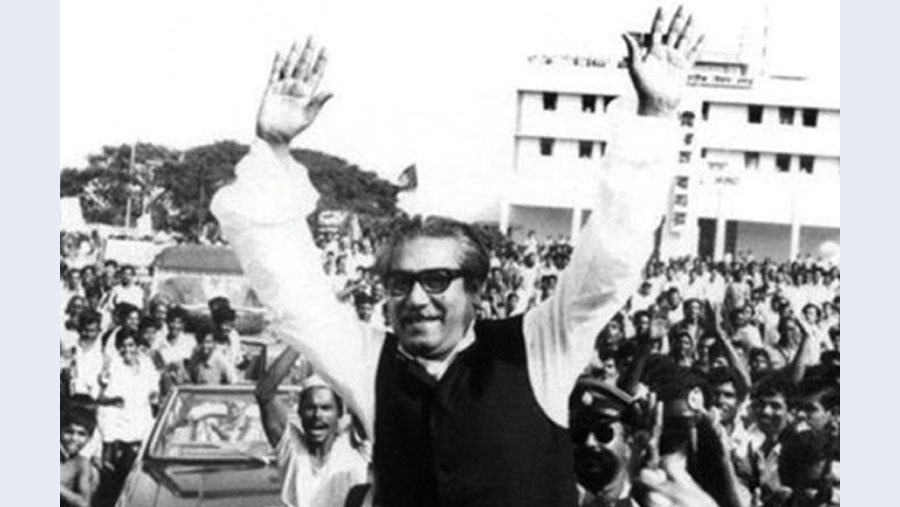


The historic Homecoming Day of the greatest Bangalee of all the times Father of the Nation Bangabandhu Sheikh Mujibur Rahman is being observed today in a befitting manner.
Bangabandhu, the undisputed leader of the nation and supreme commander of the country’s Liberation War, returned to the sacred soil of independent Bangladesh via London and New Delhi on Jan 10 in 1972, after 290 days of confinement in Pakistan jail.
This year, the observance of the Bangabandhu’s Homecoming Day is very significant as the nation is going to celebrate the great leader’s year-long birth centenary programmes from Mar 17.
The government has already declared ‘Mujib Year’ from Mar 17, 2020 to Mar 17, 2021. The countdown for the birth centenary celebration will begin from the Homecoming Day.
Prime Minister Sheikh Hasina will inaugurate the countdown for the yearlong birth centenary celebration at the National Parade Ground at Tejgaon in Dhaka today.
To mark the day, the ruling Awami League, its associate bodies, other political parties and socio-cultural-professional organisations have chalked out elaborate programmes.
The day’s programme will start with hoisting of the national and party flags at the Awami League central office, Bangabandhu Bhaban, and party offices across the country in the morning. Awami League leaders and workers will place wreaths at the portrait of Bangabandhu at Bangabandhu Bhaban in the city’s Dhanmondi area.
Awami League leaders will attend the countdown programme, which will begin at the National Parade Ground around 3 p.m.
On the night of Mar 25, 1971, Pakistan army arrested Bangabandhu from his Dhanmondi residence and sent him to a West Pakistani jail the following day.
Bangabandhu was subjected to inhuman torture in the Pakistan jail where he had been counting moments for the execution of his death sentence that was pronounced in a farcical trial.
“I was a prisoner in the condemned cell awaiting hanging. From the day I went into jail, I didn’t know whether I was to live or not. I was mentally ready to die. But I knew Bangladesh would be liberated,” Bangabandhu spoke emotionally about his ordeal in Pakistani prison at a news conference in London.
On the Pakistani army’s slaughter of Bengalis, “Mujib declared: “If Hitler could have been alive today, he would be ashamed.”
Earlier on Mar 26 in 1971, Bangabandhu proclaimed independence of Bangladesh and urged people from all walks of life to participate wholeheartedly in the nation’s War of Liberation.
Immediately after the proclamation of independence, Bangabandhu was arrested by Pakistani military junta and then flown to West Pakistan to keep him in prison there.
Though the final victory in the nine-month-long bloody War of Liberation was achieved defeating Pakistani occupation forces on Dec 16 in 1971, the nation’s expectations were fulfilled and the people got the real taste of victory with the homecoming of Bangabandhu on Jan 10, 1972.
On reaching Dhaka (Tejgaon) airport in the afternoon on Jan 10, Bangabandhu was greeted by tens of thousands of jubilant people who had been eagerly waiting to see the beloved leader since the final victory on Dec 16 in 1971.
From airport Bangabandhu was moved to the Racecourse Maidan (now Suhrawardy Udyan) where he addressed a spontaneous reception accorded to him by the cheerful countrymen believed to be one million.
He recalled with respect the contribution of all during the war and urged the people to rebuild the war-ravaged country.
Bangabandhu took oath of office as the country’s Prime Minister on Jan 12, 1972.